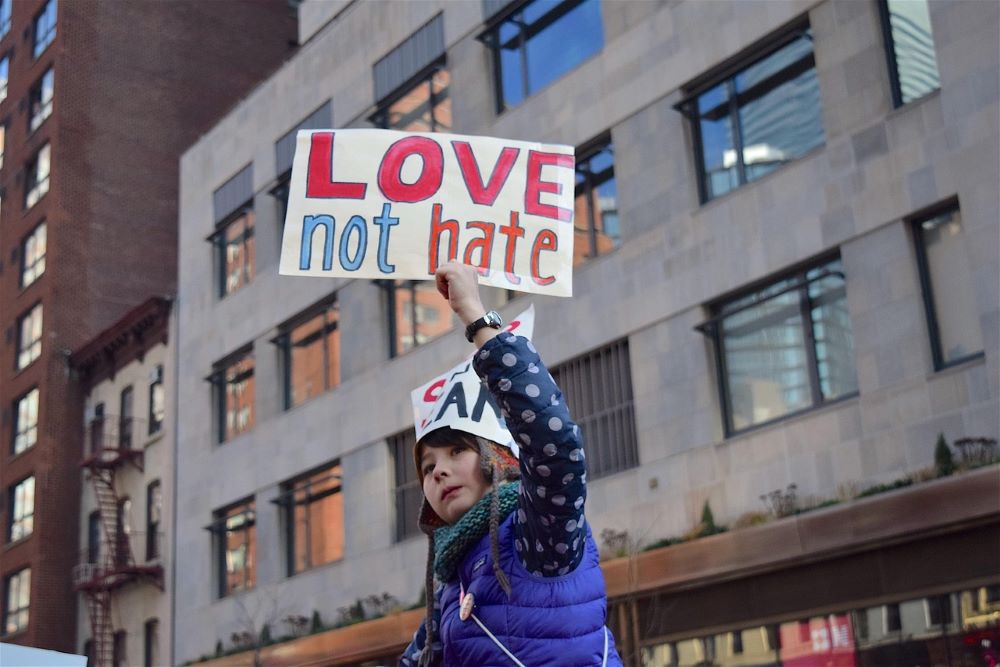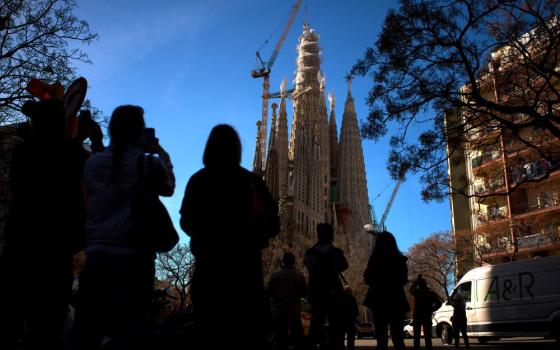
(Pixabay/bones64)
Jesus said, "Love your enemies" (Matthew 5:44). It sounds surreal and takes a lifetime of practice because we are vulnerable to hatred when thrown into unexpected circumstances we do not want to experience. We can choose to be in survival mode, withholding compassion, devaluing fellow human beings and treating them as "others," or we can choose a sustainable path of healing.
Hatred is an intense emotion plaguing not only the United States but the world. Amid the heaviness of hatred, the Incarnate Word Sisters remembered the survivors of human trafficking and the people who work for justice and peace in January (National Human Trafficking Prevention Month) through advocacy with our sponsored ministries and public prayer.
We asked ourselves: Where do pornography, rape and incest, prostitution and unfair labor come from?
On Feb. 8, the Feast of Saint Bakhita, we were joined by religious sisters, friends and collaborators to pray for the survivors, and I was reminded of a woman who was trafficked by her own family beginning when she was a baby. Her mother and stepfather treated her and her siblings as income generators. She was used for pornography, suffered incest and was raped by people in authority, such as her stepfather, siblings, police officers, clergy, people she rented space with and others she met while unhoused. Now, she has trauma and illnesses, some of which are untreatable.
She became an agnostic, then an atheist. She respects the faith of others but is afraid of the church, having suffered from its abuse of authority. She does not trust the government, either. Even the agencies that were supposed to help and protect her failed and abused her.
She struggled to stay off the streets and earned a master's degree to survive. The trauma of her life made her unable to work. She collapsed due to PTSD when the horrors in her life were activated while she worked in a grocery store. However, she did not let her past stop her from moving forward. She wants justice, but her focus is to separate herself from evil to focus on healing. Given her traumatizing experiences, she does not want to be with her family.
On the other side of the spectrum of trauma is a loving family. Dr. Izzeldin Abuelaish, a Palestinian physician, loves his family and vice versa. He lived at the Jabalia refugee camp in Gaza and endured the injustices as a refugee. Within a few months of his wife's passing from cancer in 2008, he suffered the horrific deaths of his three daughters and a niece when his apartment was shelled. He survived the tragedy to tell the world of the injustice and uncertainty that Gazans faced every day while leaders hesitated to declare a ceasefire. He remained steadfast in his faith, wrote the book I Shall Not Hate, was awarded dozens of honorary doctorates and was a five-time Nobel Peace Prize nominee.
Abuelaish did not allow hatred to control him. His dream fueled him to persevere for a better life. As he said in his book, "Hatred eats your soul and takes opportunities away from you. It is like a consuming poison."
In February, the Incarnate Word Sisters' San Antonio Office of Justice, Peace and Integrity of Creation (JPIC), in collaboration with Compassion San Antonio and other organizations, invited Abuelaish, now a Canadian citizen, to speak about "hatred as a contagious and destructive disease."
Abuelaish's message offered an opportunity for the academic community to identify hatred using the lens of science, where medical researchers can look for its pathogens to recognize the causes and create a prescription for healing. He suggested observing where hatred is prominent and giving attention and healing to that demographic.
Advertisement
At another event, he talked about his experience as a Gaza-Palestinian refugee. With deep sadness, while talking about his past, he said he did not want anyone to experience the pain of losing loved ones to a tragic event and seeing the horrific remains of his daughters and niece. His remaining children inspired him with their resiliency.
He wants to create positive change by bringing scholarships to Middle Eastern women through his Daughters for Life Foundation in honor of his late daughters. He carries on their dream, where women are included in the conversation and education, respected and dream of a better life.
He hopes for a day when both sides fighting over Gaza have a place of healing, where there is trust, dignity and shared humanity for their coexistence. He hopes for a future when leaders can find ways to talk about their differences and the voices of the people are considered valuable.
Life's uneventful circumstances can be disheartening. No one can escape hurtful experiences. The people in these real-life stories chose a life of healing over hatred. Will you choose forgiveness and take a courageous step to seek healing and that of others? Will you dare to say, "I shall not hate?"





